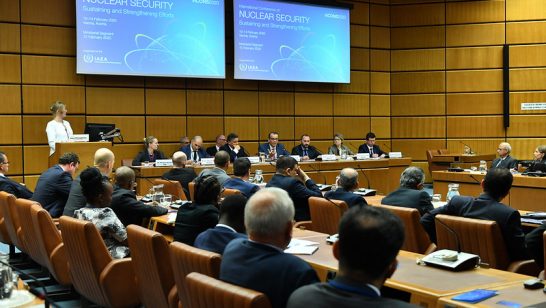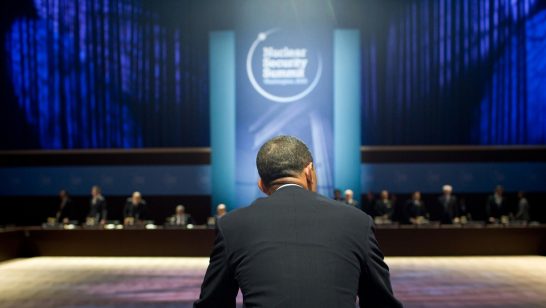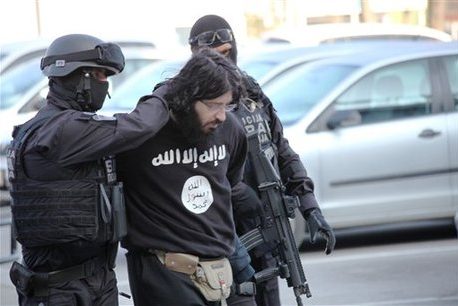
This month marks 20 years since the 9/11 attacks. Thousands of innocent people fell victim to a heinous attack on that day causing unspeakable loss. At the international level, the response to the attacks significantly transformed the global security landscape.
The day after the attacks, recognizing the threat posed by transnational terrorism, the United Nations Security Council (UNSC) adopted Resolution 1373, which defines a broad counter-terrorism mandate for the international community and established the Counter-Terrorism Committee. UNSCR 1373 has shaped an ever-growing global counter-terrorism agenda continuing to this day. Since September 2001 the forms of terrorism have changed significantly, yet it continues to pose a significant threat to international peace and security. Currently, for instance, the Taliban, who once provided a safe haven for Al-Qaeda, have seized control once again in Afghanistan.
It is vital to remember that the global rise of counter-terrorism measures as a response to the 9/11 and subsequent terrorist attacks have also had far-reaching implication on the rule-of-law, damaged the international framework for the protection of human rights and brought about increasing restrictions of civic freedoms. The devastating consequences of terrorist attacks on the right to life, physical integrity and liberty clearly show that terrorism itself infringes on human rights. Under international law states have an obligation to counter terrorism, including because the security threats posed by terrorism undermine the enjoyment of human rights. Nevertheless, counter-terrorism measures also pose significant challenges to human rights and the rule of law, the very values that democratic societies are trying to protect. And while the UN Global Counter-Terrorism Strategy as well as numerous UNSC resolutions underline the need for all counter-terrorism measures to comply with international law in practice this often falls short, and narrow “security first” approaches prevail on the ground.
While the UN Global Counter-Terrorism Strategy underlines the need for all counter-terrorism measures to comply with international law, in practice this often falls short and narrow 'security first' approaches prevail on the ground. Mona Koehler-Schindler
To this day, accountability for severe human rights violations commited in the fight against terrorism remains difficult to achieve. Independent oversight to assess and mitigate harm from counter-terrorism measures is generally lacking. One of the most prominent symbols for severe human rights violations committed during the “war on terror”, the Guantanamo Bay detention facility, remains operating until today. Counter-terrorism measures that operate outside of a human rights framework do not create long-term security and stability. Both the UN and the OSCE recognise the lack of respect for human rights as a condition conducive to the spread of terrorism. Disrespect for human rights decreases security and stability and plays into the hands of terrorist recruiters, who seek to undermine security, social cohesion and human rights. A regional example in this regard is described in an extensive UNDP study into the drivers of violent extremism in African states. The study finds that the “tipping point” to radicalization to terrorism for 71 per cent of the individuals surveyed was perceived state violence or abuse of power, making state action “the primary factor finally pushing individuals into violent extremism in Africa”.
The international community therefore needs to be extremely vigilant to misuse of the counter-terrorism agenda as a pretext to curtail human rights. In particular, when introducing new counter-terrorism regulation and tools, international bodies need to consider the overall global context and take into account that these might serve as justification for further restrictions of human rights and civic freedoms in member states. The lack of an international definition of terrorism creates further problems, as it leaves states unfettered discretion, carrying the potential for both, unintended human righst violations and deliberate misuse against individuals and civil society, as well as for overly broad and vague definitions of terrorism in national law.
Furthermore, even if not deliberate, counter-terrorism measures can have unintended and indirect implications on the human rights of individuals and on the ability of civil society to operate effectively and freely. For example, counter-terrorism financing legislation has partly hindered the ability of non-profit organizations to provide humanitarian aid to those most in need, particularly when operating in conflict zones. The ICRC highlighted this “chilling effect” of counter-terrorism financing measures which may disincentivise or prevent (particularly local) frontline responders from reaching populations in need.
Effective counter-terrorism policies require a whole-of-society approach. Given the profound impact counter-terrorism measures can have on their work, meaningful consultation and involvement of a wide range of civil society actors is of particular importance. Inclusion of civil society and human rights institutions must also be strengthened within the UN counter-terrorism architecture and international bodies such as the Financial Action Task Force. Broadening the spectrum of actors can also help to take advantage of the importance of critical viewpoints in identifying and correcting mistakes and driving change.
We should be careful not to sacrifice the very same values we are trying to protect in the fight against terrorism. Mona Koehler-Schindler
Terrorism seeks to undermine the core principles and values that free societies are based on: democracy, rule-of-law and the protection of human rights. In times of crisis, when security threats and emergencies arise, these core values come under stress. In the case of terrorism, exceptions become the norm, disproportionate human rights restrictions are written into laws and temporary derogations are extended with no end in sight. We should be careful not to sacrifice the very same values we are trying to protect in the fight against terrorism. The protection of human rights and countering terrorism are no competing objectives but mutually reinforcing and we cannot afford to accept human rights violations as “collateral damage” in the fight against terrorism.
The opinions articulated above represent the views of the author(s) and do not necessarily reflect the position of the European Leadership Network or any of its members. The ELN’s aim is to encourage debates that will help develop Europe’s capacity to address the pressing foreign, defence, and security policy challenges of our time.
Image: Twin towers, Richard Drew, Supplier AP, Supplier NTB scanpix



